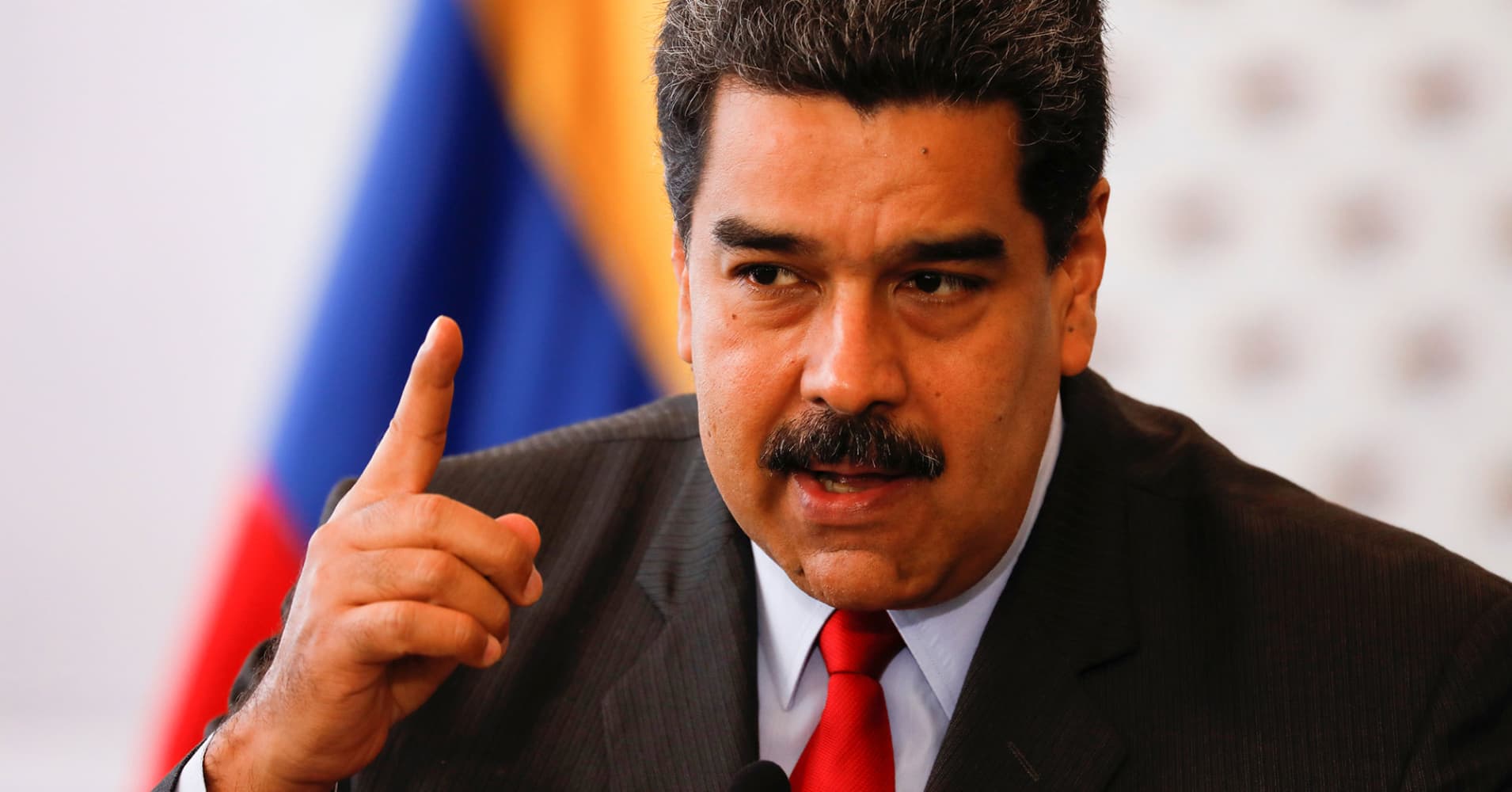
Russia and China strongly criticized U.S. sanctions placed on Venezuela, with the former pledging to support the beleaguered President Nicolas Maduro.
Russian Foreign Minister Sergei Lavrov said the sanctions completely undermined confidence in the international financial system that is dominated by the U.S., Russian news agency Interfax reported.
"Russia is doing everything to support the lawful government of Maduro," Lavrov added, calling U.S. sanctions against Venezuelan state energy firm PDVSA "cycnical."
Kremlin spokesperson Dmitry Peskov added that the restrictions continue an "undisguised interference in its (Venezuela's) internal affairs," calling the new sanctions "illegal."
The U.S. administration announced sanctions against the state's dominant energy firm PDVSA on Monday in a bid to damage the socialist dictator, President Nicolas Maduro, who is clinging to power amid a leadership battle.
Last week, the opposition leader of Venezuela's National Assembly, Juan Guaido, named himself interim president after street protests against Maduro. The U.S. recognized that claim and has been encouraging support for regime change in Venezuela, a country hit by the economic policies of Maduro.
Earlier on Tuesday, China also voiced its opposition to sanctions, saying the U.S. should bear responsibility for the consequences of its sanctions. Foreign Ministry spokesman Geng Shuang said historical experience showed foreign interference "only makes situations more complicated," Reuters reported.
"The relevant country's sanctions on Venezuela will lead to the deterioration of conditions of people's lives," Geng told a regular news briefing in Beijing, referring to the United States.
"They should bear responsibility for the serious consequences from this," he said.
China has lent more than $50 billion to Venezuela through oil-for-loan agreements over the past decade, securing energy supplies for its fast-growing economy, Reuters noted. The news agency calculates that Russia too has lent Venezuela at least $17 billion in loans and credit lines since 2006.
As well as Russia and China's support, Maduro still has the support of the Venezuelan military which could prove vital to him holding on to power.
Helima Croft, the head of commodity research at RBC Capital Markets, told CNBC Tuesday that the Venezuelan government had close ties to the military.
"The recovery of this country is going to be an enormous challenge and we're just not there yet. We keep saying, well will the military rise up against Maduro? Well, this is technically a military government ... So, the question is, will these sanctions put so much pressure on the Venezuelan military that they finally turn on Maduro? It's a real open question," she said.
Croft added that the U.S. "finally pulling the trigger" with sanctions on PDVSA was "a significant development."
"This will effectively amount to an embargo on PDVSA products into the U.S.," she told CNBC's Steve Sedgwick in Florence. "It's going to create a lot of confusion for foreign IOCs (international oil companies) and how they deal with a now-sanctioned entity."
via IFTTT
No comments:
Post a Comment